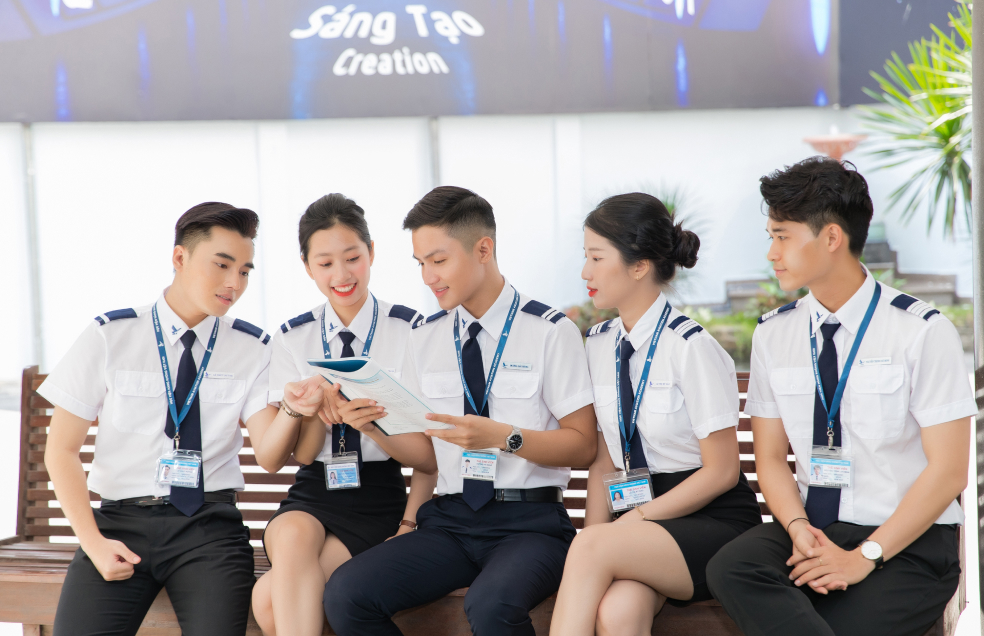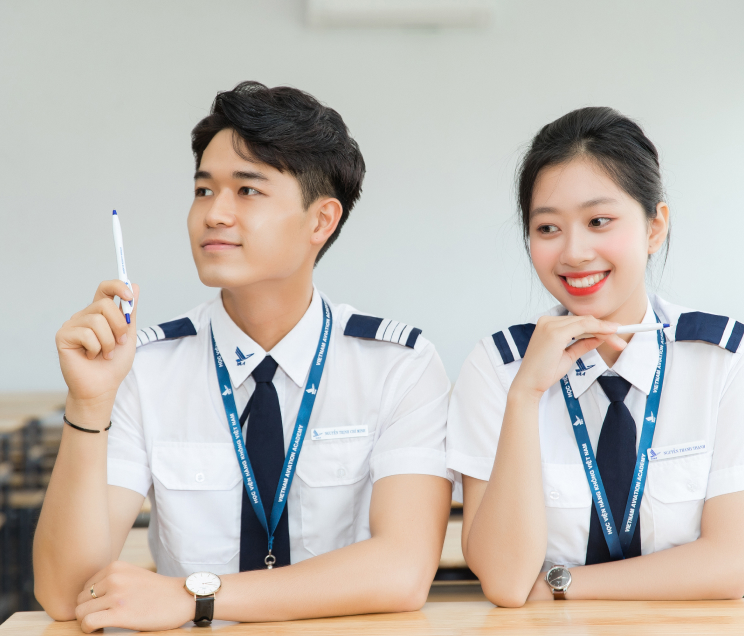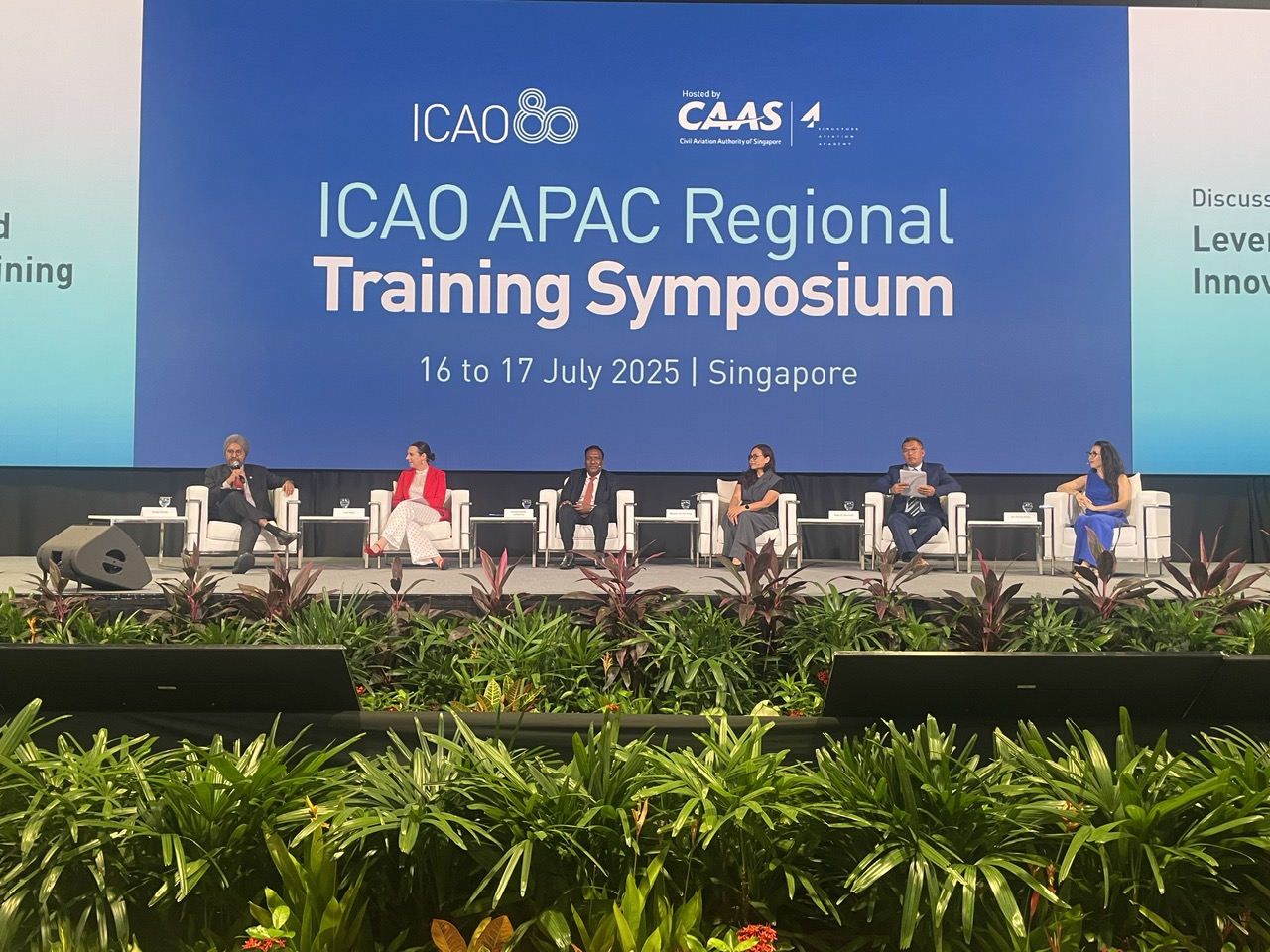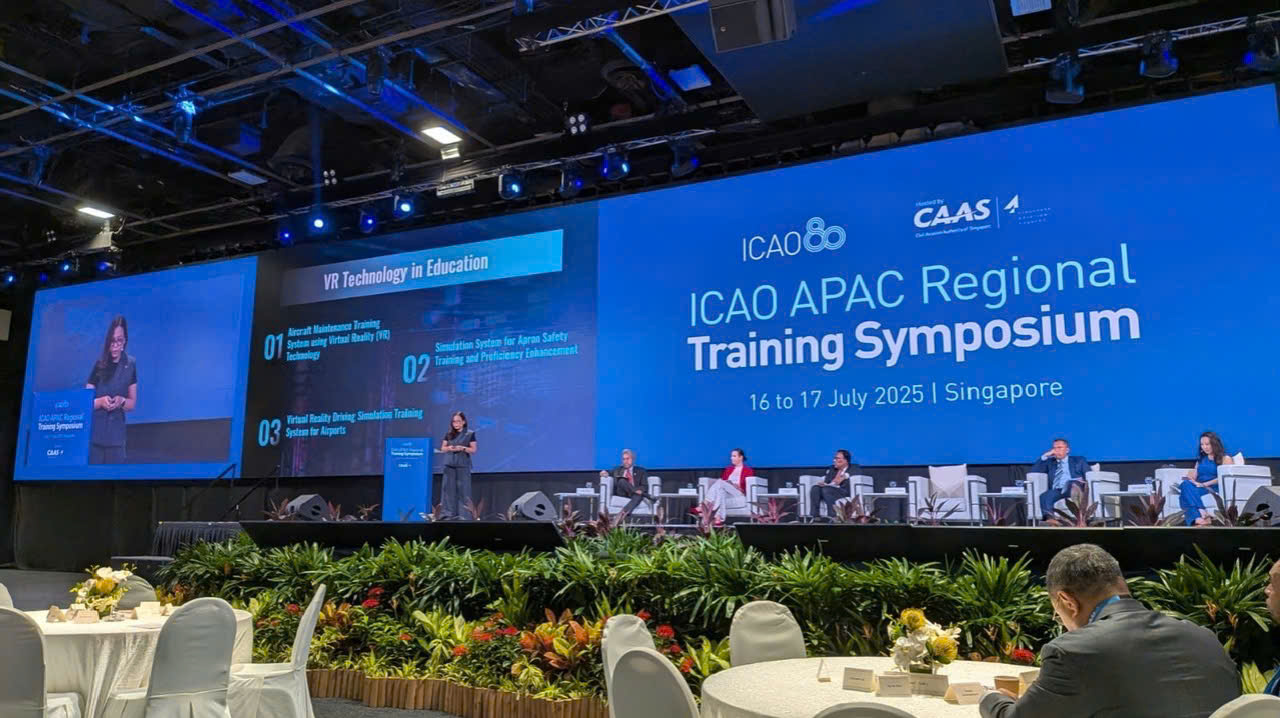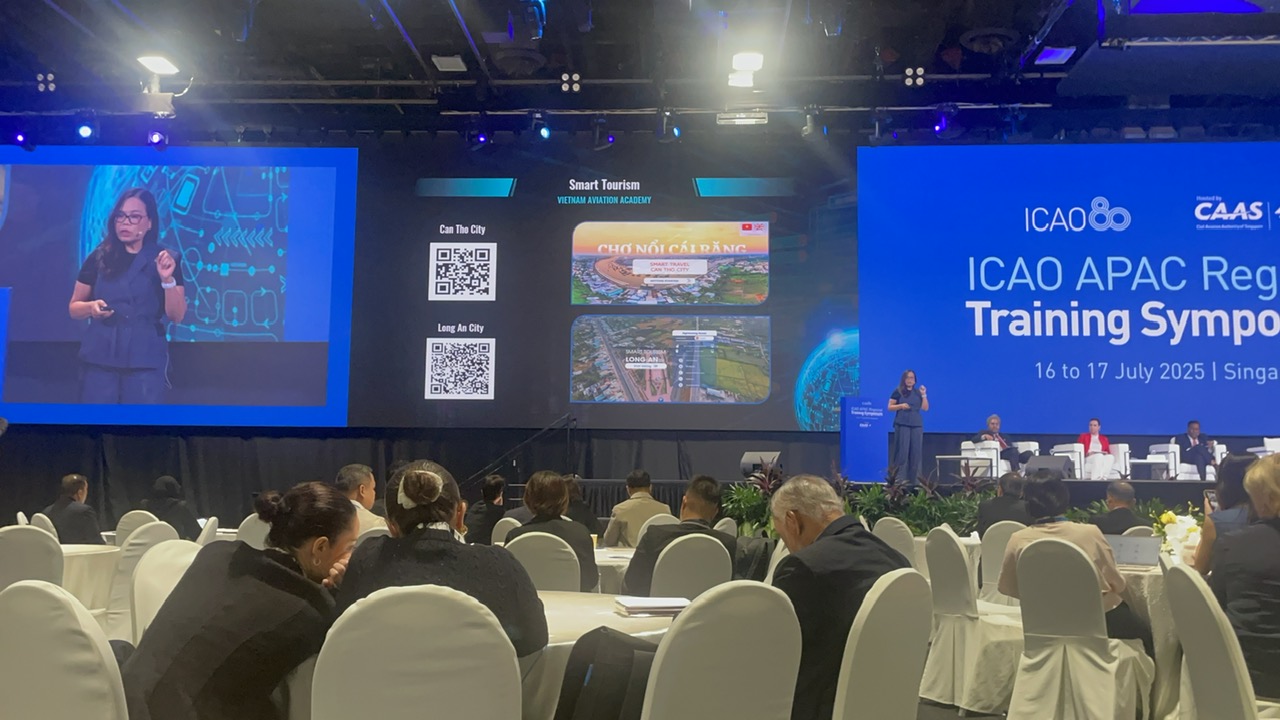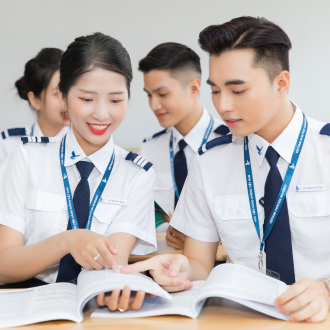Vietnam Aviation Academy Pioneers Smart Aviation Training
Singapore, July 16, 2025 – At the vibrant ICAO Asia-Pacific (APAC) Regional Training Symposium held in Singapore, the Vietnam Aviation Academy (VAA) reaffirmed its pioneering position in the application of cutting-edge educational technologies. With an impressive presentation at Discussion Panel 1: Leveraging Educational Technologies and Innovative Methodologies in Aviation Training, Dr. Nguyen Thi Hai Hang, Director of the Vietnam Aviation Academy, shared VAA’s vision and notable achievements on its journey to becoming a smart university with technology at the core of its development.
Images from the ICAO APAC Regional Training Symposium held in Singapore, July 16–17, 2025
Dr. Nguyen Thi Hai Hang’s presentation not only captured the attention of international aviation experts but also offered a fresh perspective on how technologies such as Virtual Reality (VR) and Artificial Intelligence (AI) are shaping the future of aviation training.
Dr. Nguyen Thi Hai Hang, Director of VAA, presenting key VR training systems applied by the Academy at the symposium
Bringing Real-World Environments into the Classroom: The Power of VR
Opening her presentation, Dr. Hang vividly illustrated the complexity and pressure of airport apron operations – a space described as a “high-risk symphony with zero tolerance for errors.” VAA identified a significant gap in preparing students mentally and practically before entering this high-stakes environment.
“We asked ourselves: What if we could bring the apron and hangar into the classroom? Not through textbooks, but through VR, AI, and immersive training experiences,” Dr. Hang passionately shared.
The Vietnam Aviation Academy has developed three immersive VR training projects entirely in-house, integrating AI software to radically transform how students learn and how instructors teach.
Key VR systems developed and implemented by VAA include:
-
Airbus A320 Nose Gear Maintenance Simulator: Aircraft maintenance students practice identifying fluid leaks, checking struts, and inspecting torsion links in VR before handling a real aircraft. This builds confidence, competence, and readiness for real-world tasks.
-
Apron Safety Simulation: Recognizing the apron as one of the highest-risk areas in aviation, VAA created an internal VR apron safety system. It allows students to learn from mistakes without facing real-world consequences, fostering safety awareness and confidence.
-
Airport Driving Simulation: For new airport drivers, the VR driving simulator using Oculus and Logitech devices enables practice in real-world weather, traffic, and high-pressure scenarios. Training modules include baggage tugs, shuttle buses, and catering trucks, building “muscle memory” that no manual can offer.
Developed by VAA’s faculty and researchers, these systems have significantly reduced costs (e.g., the nose gear maintenance simulator costs only $50,000 compared to $170,000 externally, the apron safety system saved at least $150,000), while fostering a strong internal culture of innovation and creativity.
AI: Fair, Fast, and Feasible Assessments
In addition to VR, VAA has also developed an AI-powered online examination platform that automatically generates balanced and randomized test questions. This system minimizes bias, enhances transparency, and saves valuable time for faculty. With an investment of just $20,000–$30,000, VAA created a fully proprietary platform used across all departments, with no ongoing maintenance or customization costs.
Building Internal Capacity: A Vision of a Smart University
Explaining the decision to develop these technologies in-house, Dr. Hang emphasized: “Because when you build technology, you build people.” Faculty become designers, IT staff become problem-solvers, and students become pioneers in application.
VAA aims to become a leading AI-supported university, where technology empowers rather than replaces humans. The Academy is integrating AI into teaching, learning, and solving real-world aviation challenges – and beyond. “This is about co-creating smarter systems and smarter people,” Dr. Hang asserted.
Beyond aviation, VAA is also expanding its expertise into smart tourism, urban mobility, and regional development projects in Long An and Can Tho. These projects not only develop transferable workplace skills and knowledge but also highlight the vital role of universities as local innovation engines driving tourism-based economic growth.
Dr. Nguyen Thi Hai Hang presents smart tourism, urban mobility, and regional development projects in Long An and Can Tho.
Dr. Nguyen Thi Hai Hang’s speech at the ICAO APAC Symposium not only showcased VAA’s adoption of advanced technologies but also inspired a vision for the future of aviation training – where persistence, experimentation, and internal vision are the keys to building a generation of aviation professionals ready for any challenge. The Vietnam Aviation Academy is truly “changing the game” and elevating how future learners are prepared.
KHCN&HTQT-MTP

Vietnam Aviation Academy compiled national standards on ground radio navigation aid systems

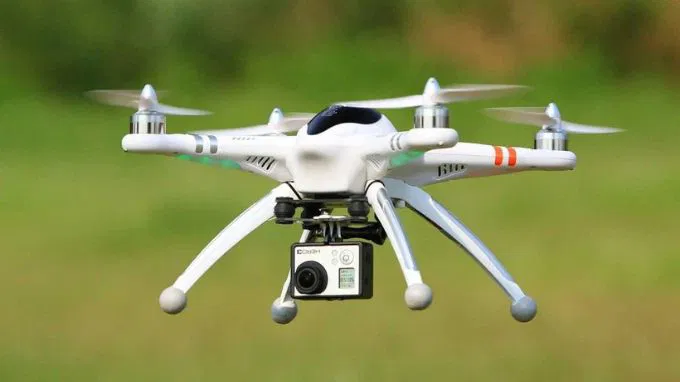
What is a UAV? What is a drone? What is the difference between UAV and drone?

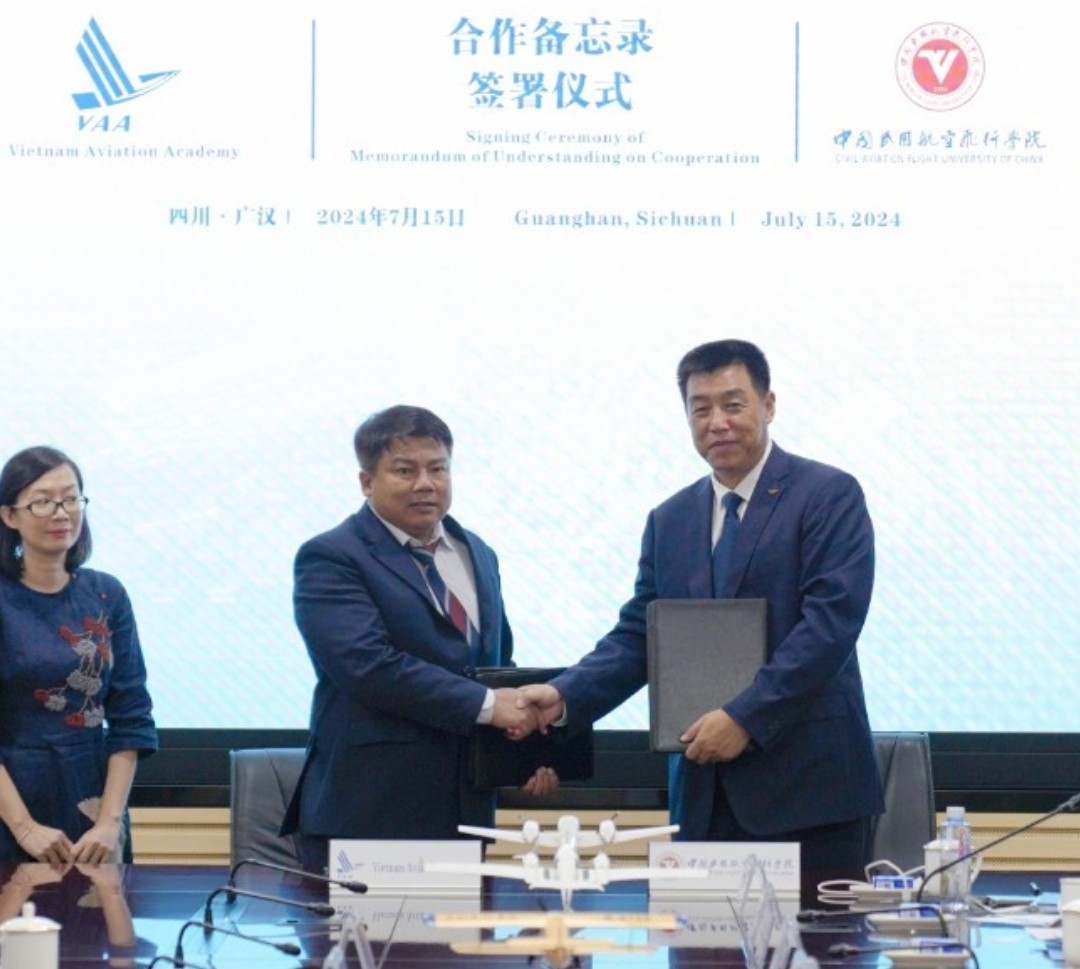
VIETNAM AVIATION ACADEMY HAS SIGNED A COOPERATION AGREEMENT WITH CIVIL AVIATION FLIGHT UNIVERSITY OF CHINA

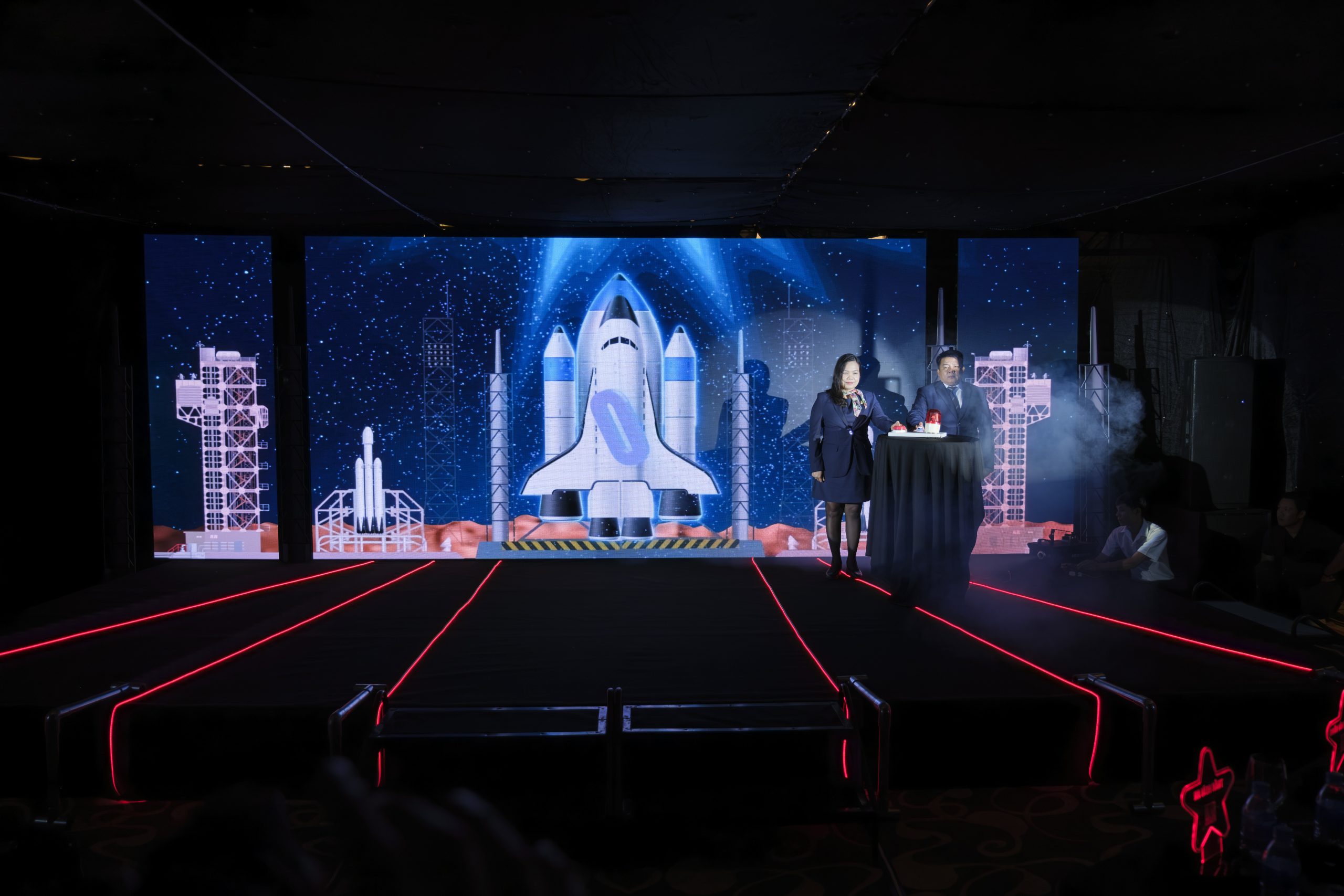
Workshop on Developing a Strategic Plan for the Vietnam Aviation Academy: Resolutely Realizing Key Strategic Objectives


The Impact of Artificial Intelligence on the Global Economy: An Ongoing Revolution

